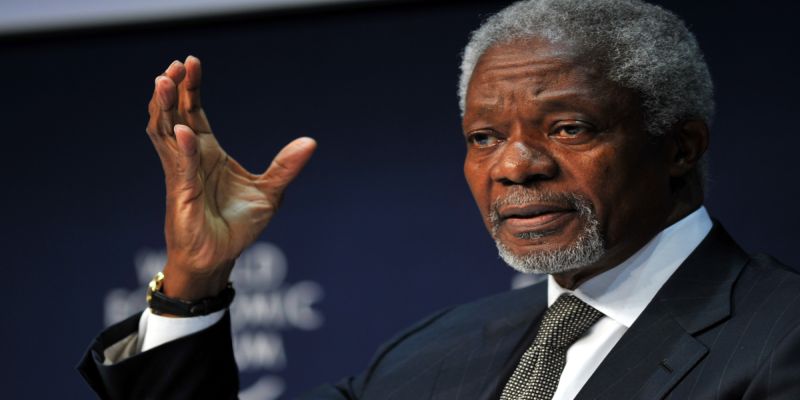Global Wellbeing: The Courage for Positive Change

Today, Asia is one of the main drivers of the world economy, contributing to the prosperity and stability of the region and beyond. Over the past two decades, extreme poverty has decreased sharply across most of Asia. The region is today also a thriving center for technological progress, innovation and entrepreneurship.
But despite huge progress, remaining and newly emerging challenges require urgent attention. And business has a key role to play in the response to these serious challenges. In Asia and across the world, millions still suffer from poverty and hunger, and are threatened by violent conflict and diseases. In many places, inequality is growing and widening the gap between the richest and the poorest. It is a moral outrage that, according to a recent Oxfam report, just 8 men have the same wealth as half the world’s population. Environmental degradation and natural resource depletion continue unabated. And man-made climate change is driving the world to the brink of catastrophe.
The challenges we are facing are huge, but fortunately we are not starting from scratch. With the Sustainable Development Goals and the Paris Agreement on Climate Change, governments have adopted a compelling vision with ambitious goals. Leadership and long term vision from every sector is needed if we are to successfully achieve our ambitions, and business must be at the heart of this endeavor. I would like to share my thoughts on how we can put to work the resources, leadership, and creativity that I see all around me to create positive change in Asia and the world.
First, we have to make sure that business does not forget the poorest. As far-sighted corporations have long understood, this is neither about altruism nor charity. Doing good is good for business. By raising incomes and removing the barriers which trap people in poverty you are building the consumer base for your products and services tomorrow. This is why an increasing number of businesses are changing their business model to engage the poor either as customers or as business partners.
Second, we have to build alliances and partnerships to increase equitable growth and opportunity for all. Successful public-private partnerships need to be expanded and replicated across sectors to help provide the infrastructure and services to promote prosperity and address critical social needs. Across the world and here in Asia, smart corporate leaders are already embracing new technologies to deliver wider goals of sustainable development, including improving access to food and clean water, to sanitation, healthcare and education. They are building partnerships to create vital employment opportunities, particularly for youth and women. With the dramatic rise of digital technology, the marketing sector can collaborate with development partners to help bridge the digital divide to build more inclusive societies.
Third, businesses need to ensure the decisions they make will deliver sustainable and ethical development. I urge businesses of all sizes to embed sustainable development in their marketing strategies, production processes and value chains. I am convinced that we are entering an era in which companies that are doing business responsibly and innovate around the Sustainable Development Goals will be the market leaders of tomorrow. Companies must also join the UN Global Compact and align their business activities with the Compact’s principles of human and core labour standards, the environment, and anti-corruption. We need you to act for the good of both – your businesses and your societies.
In no area is business action more needed than climate change. In Asia and in many other countries across the world, millions of people suffer from massive air pollution, contaminated sources of drinking water, and degraded crop land. Sea level rise is threatening coastal cities and small island states. Indonesia by itself could lose 2,000 of its islands by 2030 if sea levels continue to rise. Asia, as the world’s biggest greenhouse gas emitter, has a key role to play in contributing to turn the Paris Accord’s goals into reality.
Climate change is not just a serious challenge, but also a huge opportunity for all industries to transition to a green economy. Let us be clear, there is no trade-off between economic growth on the one side and zero emissions strategies on the other side. They are compatible. An increasing number of companies are embracing renewable energy in a big way and are improving energy efficiency through technological innovations. China, for example, has shown that unlocking clean energy power such as solar and wind cannot just drive growth and jobs, but also provide rural populations with access to clean energy. But more needs to be done.
I encourage companies and entrepreneurs to partner with universities and research institutes to develop energy-efficient buildings, smart transportation systems, and climate-friendly waste management solutions. Investors must assess the social and environmental impact of their investments to make the right and critical choices. The advertising and marketing sectors also have an important role to play given their significant influence over consumer choices. I therefore encourage those among us working in this industry to promote products, services and campaigns that help shift consumption patterns towards sustainability.
I recognize that this is an ambitious agenda. There are many challenges to overcome, but I am confident that through leadership, partnership, and vision, positive change is possible. With the full engagement of business, globalization can be harnessed into a process which ensures prosperity for all, while protecting our planet. So let us all live up to this responsibility.
By Kofi Annan
Former Secretary-General of the United Nations and Chair of the Kofi Annan Foundation.
